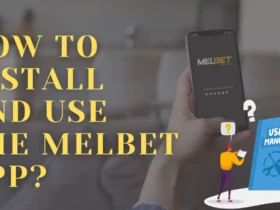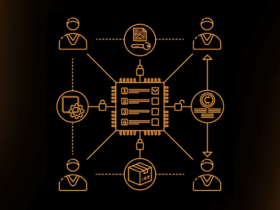Can public sector blockchain develop trust, shield data, and minimize cost? Blockchain technology can support Bitcoin and has gained importance as the mainstream topic in the last few years. Many countries have joined the Blockchain network and expanded its importance.
Many agencies are testing blockchain technology applications for different purposes. It comprises supply chain, applications of payments, identity management, and more. Even though there isn’t really Bitcoin governance, we can see the perceptible advantages of blockchain and Bitcoin that governments can enjoy.
Blockchain technology is emerging and works together to test and expose its potential. It can recognize practical blockchain challenges and create the corresponding resolution.
Significant benefits of blockchain technology in the government sector are as follows.
Blockchain and Government Sector
For some years now, many governments from different countries have been implementing this technology application in a wide array of functions and services. It includes educational credentialing land registration: health care procurement, identity management, and food supply chains. In addition, it has more potential to lead to government transformation.
Blockchain technology incorporates multiple tools and technologies in transactions and information processing. Its distinctive combination of distributed networking and cryptography enables resistance. It facilitates a foundation for the public and government to trust each other.
Officials need to think about the information captured and stored in blockchain databases. It can support the trust in the public regarding government. Even there is a need to look for other technical considerations that contribute to necessary capabilities.
How Blockchain Technology is Beneficial in Government Sector?
- Protection of Sensitive Data
This digital world has opened many ways for data breaches in different sectors. It can include stealing most sensitive information, including complete names, social security numbers, addresses, birthdates, and drivers’ licenses. In past years, millions of records for government employees got stolen from databases. These serious issues have put a question mark on the security of data.
Government has extensive data from the public, and hackers tend to hack this data potentially. Even these hackers have made it their profession to earn a considerable amount from these attacks. However, it is possible to prevent these hacks by implanting a blockchain data structure.
Data structures strengthen security by minimizing risk and can make branches challenging to prevent hackers’ access to the data. Many government agencies are raking keen interest in blockchain applications and investing massive amounts in implementing blockchain startups to develop this field.
- Cost Deduction and Improved Efficiency
Governments need to complete projects and facilitate the public even with limited resources. It is not easy for governments to complete significant projects with a tight budget. For this purpose, blockchain can minimize redundancy, reduce audit burden, rationalize processes and enhance security. Plus, it can ensure the integrity of data to a great extent.
In addition, blockchain solutions can enhance efficiency and can take federal governments’ challenges. When government accumulates funds in the budget, it consumes thousands of dollars. Through blockchain technology, it becomes relatively easy to facilitate a permanent audit trail and provide faster resolution.
- Public Trust Enhancement
Indeed, the public from many countries does not rely on the government entirely. At this point, blockchain can play an important role and benefit the government. The primary use that blockchain offers to the government is transparency in records through the decentralization process.
It can certify parties to authenticate the data. In addition, a blockchain solution for the government sector can increase independent verification of governmental claims. It can determine property disputes and stop them from happening in the future. When governments share data with citizens, it increases their trust and minimizes distrust in record keeping.
Conclusion
Finally, blockchain technology is relatively novel, but it is original tradecraft. Blockchain tends to introduce more unforeseen applications for a government that enhances public security, trust, and efficiency.

















Leave a Review